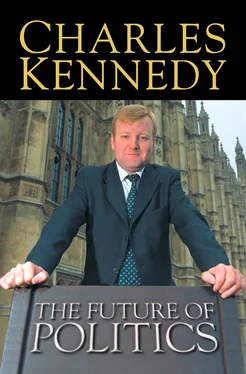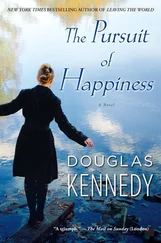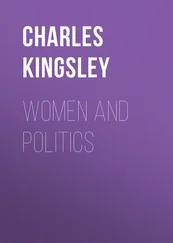There is also the issue of women’s rights and role in society, which is rightly coming far more to the fore of the political agenda. It should be a core issue for all in politics Despite the advances that women have made since receiving the vote, many still do not have equal life chances to men. A disproportionate number of women still suffers conditions of poverty in the UK. For women in work, the problems of part-time employment make a particular impact; and although women comprise 44 per cent of the workforce, the proportion of women in managerial and administrative roles is still only 32 per cent. Politicians are gradually recognizing these inequalities and deliverying policies which meet women’s needs and support their aspirations.
We are also all coming to terms with post-devolution party politics. As a Scot I am acutely conscious of that fact; so is Prime Minister Blair, who has admitted his mistake in interfering in the politics of the Welsh Labour Party over the election between Rhodri Morgan and Alun Michael. 4 Конец ознакомительного фрагмента. Текст предоставлен ООО «ЛитРес». Прочитайте эту книгу целиком, купив полную легальную версию на ЛитРес. Безопасно оплатить книгу можно банковской картой Visa, MasterCard, Maestro, со счета мобильного телефона, с платежного терминала, в салоне МТС или Связной, через PayPal, WebMoney, Яндекс.Деньги, QIWI Кошелек, бонусными картами или другим удобным Вам способом.
We even have the irony of the Conservative and Unionist Party leader seeming to welcome the fact that a combination of devolution and a degree of proportional representation has brought life back to the political corpse which his party had become in Scotland and Wales. Altered images indeed.
On the key issues of today, Liberal Democrats are in a better position than the other parties to set the agenda. We start off by trusting people. In 1865, Gladstone defined Liberalism as ‘a principle of trust in the people only qualified by prudence’, contrasting it with the Conservatives’ ‘mistrust of the people, only qualified by fear’. And I am always struck by Vernon Bogdanor’s characterization of the nineteenth-century Conservative Party as pessimistic, fearful of democratic change, and inclined to rely on central rather than local government for political solutions. Little has changed in the modern Conservative Party. We are also different because we are strong defenders of the spirit of public service: we value the expertise of professionals, and want to fund them so that they can do their jobs effectively, particularly in health and education. We want to promote social justice through health and education. We alone, apart from the Green Party, stress the environment as a fundamental part of politics. We are an internationalist party, comfortable with playing a constructive role in Europe, but ready to reform it, and look beyond European frontiers. We recognize that women and ethnic minorities still face enormous barriers to involvement in public life. We are willing to champion the needs of sometimes unpopular minorities – essential at a time when the Conservative Party is willing to exploit the debate on asylum seekers for party ends. And above all, we tie these concerns together with a commitment to the liberty of the individual, a cause that the other parties cannot lead – Labour has a strong authoritarian streak, while the Conservatives tend to equate liberty with rampant market forces.
This is the territory upon which the Liberal Democrats now operate. Society seems to be defined by near-instantaneous flitting images; as a consequence we have to be fleet of foot politically. Our past weakness, support too evenly spread in every conceivable sense, is today a source of potential strength. We must be sharp, but, emphatically, we must not be concentrated only in some parts of the country.
Now exactly what, I hear you say, does he mean by that? Allow me to explain. There is no point in this or any other political party existing or campaigning without a common purpose and a collective attitude. The Liberal Democrats have that – and it is frequently infuriating. It questions, it ridicules, it gives the awkward squad an honorary degree for their troubles. The party dislikes top-down policies. And it puts people like me in their place. Frequently.
However, it is part of the spirit of the age. People do not trust their politicians much; there is a collective dubiousness out there which is a legitimate cause for concern. Certainty has given way to uncertainty, the council estate – where the residents tended to vote en bloc one way because they all worked at the same local factory – has changed out of recognition. That local factory, or coalmine, or steelworks, or shipyard, probably no longer exists. And the council estate these days is full of families who have bought their own homes and whose children send mail down the phone line.
But has the political establishment changed accordingly? Not really. We carry on, pretty much upon the same tram-lines, affecting modernization yet not, somehow, giving real vent to it. The nineteenth-century building that houses parliament all too often contains the remnants of nineteenth-century habits. We are failing citizens as much as we are failing ourselves. And yet, away from Westminster, 2000 showed that all is not lost.
Things have got better since May 1997. In particular, the government has spread more power throughout Britain through devolution than any Conservative government would have ever contemplated. And in that time we have had clear signs of how disastrous a William Hague-led Conservative government would be: slashing taxes for the sake of it, retreating from Europe, and still pretending that there can be improvements in health and education without paying for them.
The result of the Romsey by-election on 4 May 2000, coupled to our exceptional 28 per cent share of the vote at that day’s local elections, demonstrates that the British people realize what is involved. In particular, it is clear that people are not taken in by Mr Hague’s populist, saloon-bar rhetoric on asylum seekers. After the last election, people said the Conservative Party could sink no lower. But William Hague’s behaviour did sink lower, and he got his just deserts from the people of Hampshire.
Nobody should underestimate the significance of that result. The Conservatives, while in opposition, have only twice before in the last hundred years lost an incumbent seat to the Liberal tradition at a parliamentary by-election. The first was in Londonderry in 1913, remarkably, given that the Liberals were in government. The second was the 1965 triumph in the Scottish Borders of a young man called David Steel.
There are, surely, two big implications which flow from the upheaval in Hampshire. First, there is no genuine, far less gut, enthusiasm out there for the William Hague Conservative Party. His narrow, jingoistic approach has next to no broad, public appeal. The Romsey result cannot be dismissed as the usual ‘mid-term protest against a Conservative government’. There is no Tory government to protest against. On the evidence of Romsey, the Conservative Party is less popular than it was when it met its nemesis on 1 May 1997, and after the next general election there will still be no Conservative government to protest against. Since Romsey, moderate support for the Conservative Party has continued to fall away, and I was delighted to welcome Bill Newton-Dunn, the Conservative MEP, into the Liberal Democrat fold in November 2000.
Second, people have clearly learnt one of the major lessons of the 1997 general election: that it is vital to look at the local situation when casting your vote. People are no longer being guided simply by national trends or old loyalties when voting. They are looking at how they can best deploy their ballot with the maximum effect. In Romsey that meant that Labour voters made their vote really count – some for reasons of disillusion, others because they see an alternative Liberal Democrat opposition which they find more attractive to the administration of the day. It is now clear that the 1997 experience is being repeated, and voters are regularly prepared to use their votes with lethal intent where it can matter. I have this year chastised the BBC, for example, over their tendency to speak in terms of ‘the two main political parties’. Apart from ignoring the disparate and distinct political systems at work within Scotland, Wales and Northern Ireland, it also overlooks electoral reality where the Liberal Democrats are concerned. In truth, as in Romsey, across large swathes of the country, we now have varied patterns of two-party contests – involving all three UK political parties.
Читать дальше












